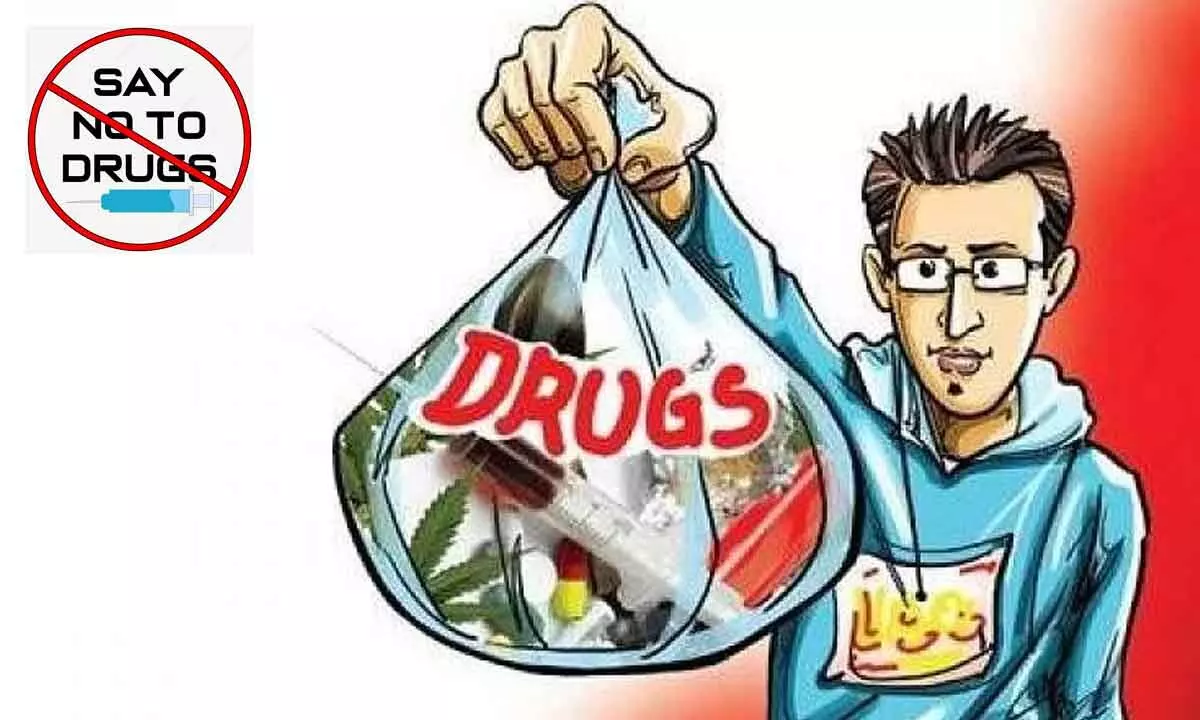Education system needs to be transformed to address drug abuse among students, say educators

New Delhi: In its ongoing effort to decode the issue of escalating addiction among adolescents and to recommend effective solutions, Think Change Forum (TCF), an independent think tank dedicated to generating new ideas has organised another round of consultation in the backdrop of the International Day Against Drug Abuse and Illicit Trafficking 2023.
The series of consultations are part of a national study initiative, titled "Ideas for an Addiction-Free India," which aims to gather insights from national experts in various fields, including policy, psychology, social sciences and the medical fraternity.
Five Key Recommendations for the Education System to address the issue of drug abuse among students
1. The first recommendation made by the experts is to focus on prevention and proactive discussions in schools to stem the issue. Explaining the need for schools to become proactive, Dr Pallavi Rao Chaturvedi said, “Schools are more than just places of education; it consists of a highly influencing community including peers and teachers in the prime years of the child. It is within the school environment that adolescents start to develop independent relationships outside of their families.”
Highlighting that schools need to be more proactive, Anju Kish said, “A lot of schools hold the misconception that hosting and conducting sessions on drugs or alcohol resistance sends a message that there is already a problem with the students. This perspective is flawed and we need to have mandatory preventive conversations within schools.”
2. The second recommendation is to effect changes in the school curriculum. Anju Kish said, “In schools, we should definitely have a subject which we can call Coping Skills or Life Skills. Such a subject would help children deal with the various issues that they face including peer pressure and emotional stress. The subject can provide tools that will enable the child to tackle such issues in a healthy manner thereby reducing the likelihood of resorting to drugs or alcohol as a coping mechanism,”
3. The third recommendation is to institutionalise a structured and robust counselling program across schools. Highlighting this recommendation, Dr Sudheendra Huddar said, “There is a need for preventive interventions that can be carried out by school counsellors or even parents. But such interventions need to be structured and implemented across schools in our education system. Education Boards need to devise the framework and guidelines within which schools can have regular and comprehensive conversations about substance abuse and its harmful effects with students.”
4. The fourth recommendation is to have early intervention programs to tackle rising cases of new dangerous habits like vaping among young children. Dr Sudheendra Huddar said, “Given how the brain works in an adolescent or young children, they seek novelty seeking behaviour, influenced by peer pressure which is absolutely not abnormal. Hence, it is crucial to address the issue early, particularly for adolescents engaging in substances like vaping, as early intervention can reduce the likelihood of developing substance use dependencies.”
5. The fifth and final recommendation emphasises the importance of involving parents in educational institutions, including colleges, to engage in conversations with their children. Recognizing the impact of the glamorisation of alcohol and drug abuse, as well as the influence of some new-age parenting styles, it is crucial to provide counselling and guidance to parents. This will empower them to have effective discussions with their children, addressing the risks and consequences associated with adventurous behaviours and preventing addiction.
Explaining the issue, Pallavi said, “Movies and OTT serials often depict vaping or e-cigarettes as coping mechanisms, leaving a lasting impression on adolescents. Gradually such behaviour becomes hard wired among the youth. Furthermore, some new age parents exhibit a lenient attitude, allowing their children to experiment or even share a drink, unlike earlier parent generations. However, it is important for parents to recognise that adolescents and young adults, aged 18 to 22, often lack the ability to establish clear boundaries. Parents must take a firm stance and set strict limits to prevent confusion in their children's minds, ensuring they understand the dangers and harmful effects associated with experimenting with products like vaping and e-cigarettes.”
Suneel Vatsayan added, "In many cases, the initiation of alcohol or tobacco consumption habits begins within the home environment. Therefore, it is crucial for parents to establish clear boundaries and avoid having any ambivalent attitude towards these chemicals, like e-cigarettes. Educational institutions can play a proactive role here by providing counselling sessions to parents to tackle this issue."
Kalyan Chatterjee, said, “Parents need to be educated in a systematic manner about effective strategies to address the issue of substance abuse among their children. It is crucial for them to understand that their children are being targeted and exploited by vested interests promoting products ranging from e-cigarettes to vaping. Rather than stigmatising the children, it is important to empathise with them and engage in open conversations. By involving parents in the educational system and empowering them to have meaningful discussions, we can collectively work towards putting an end to this menace.”














